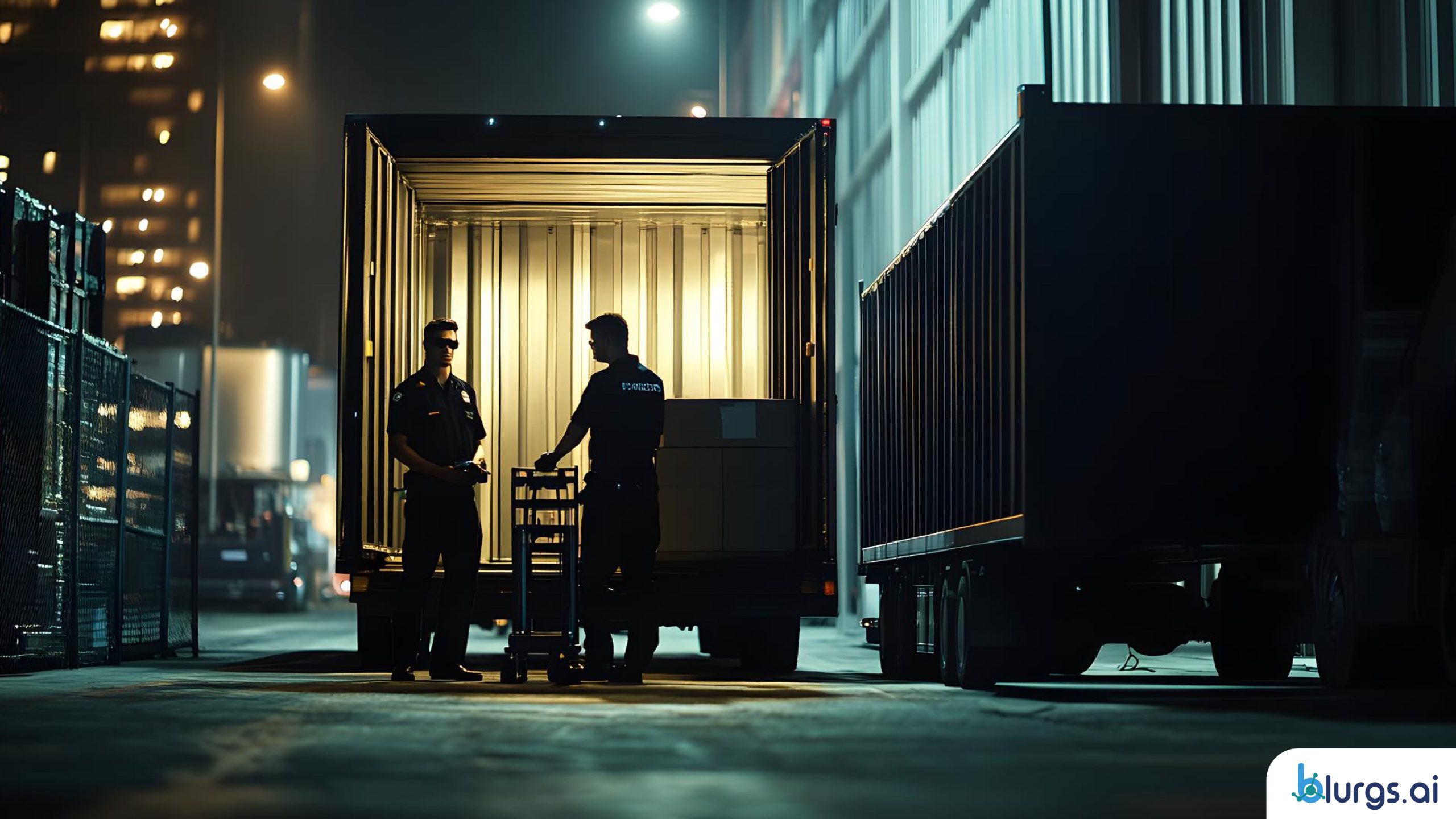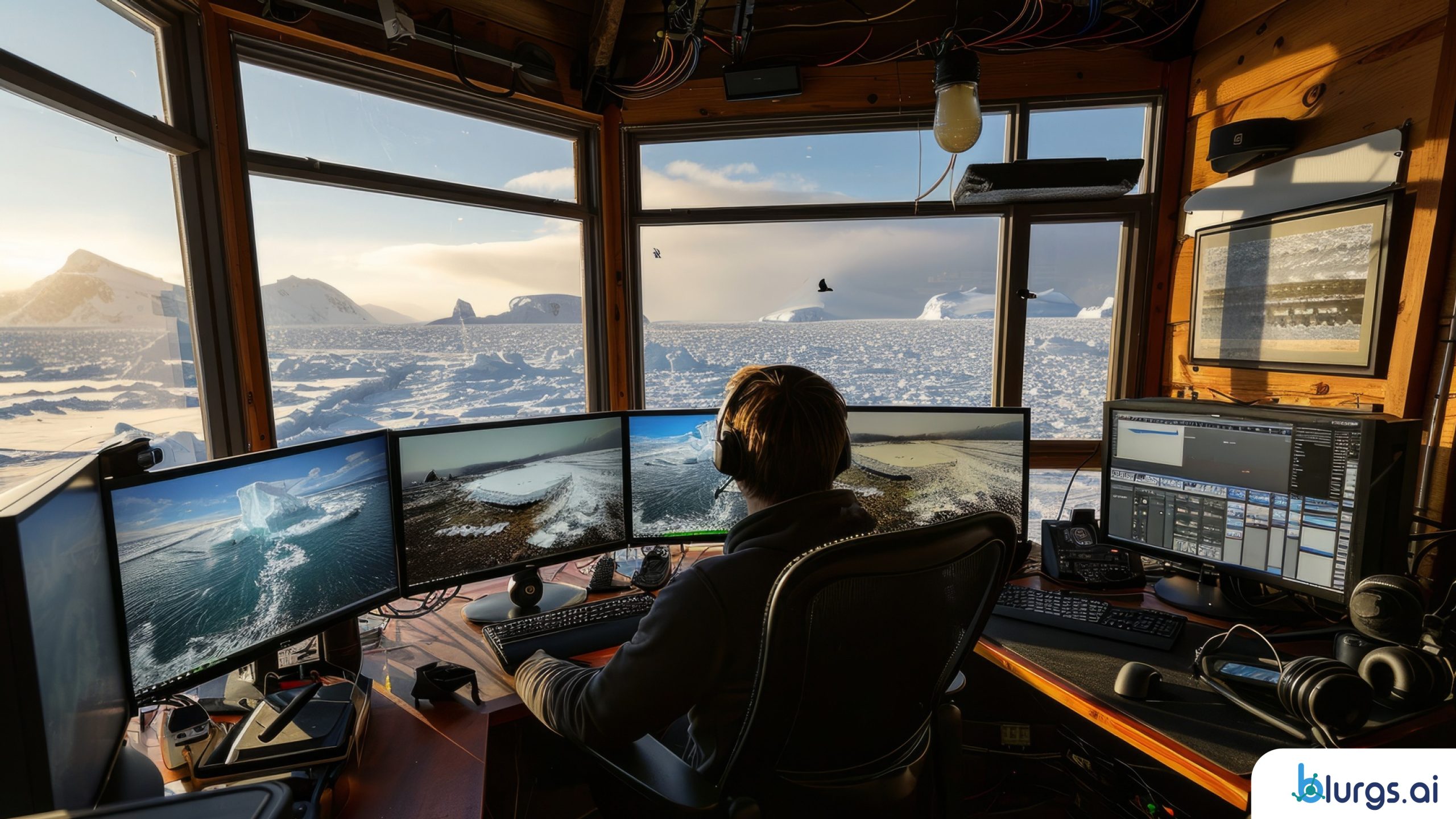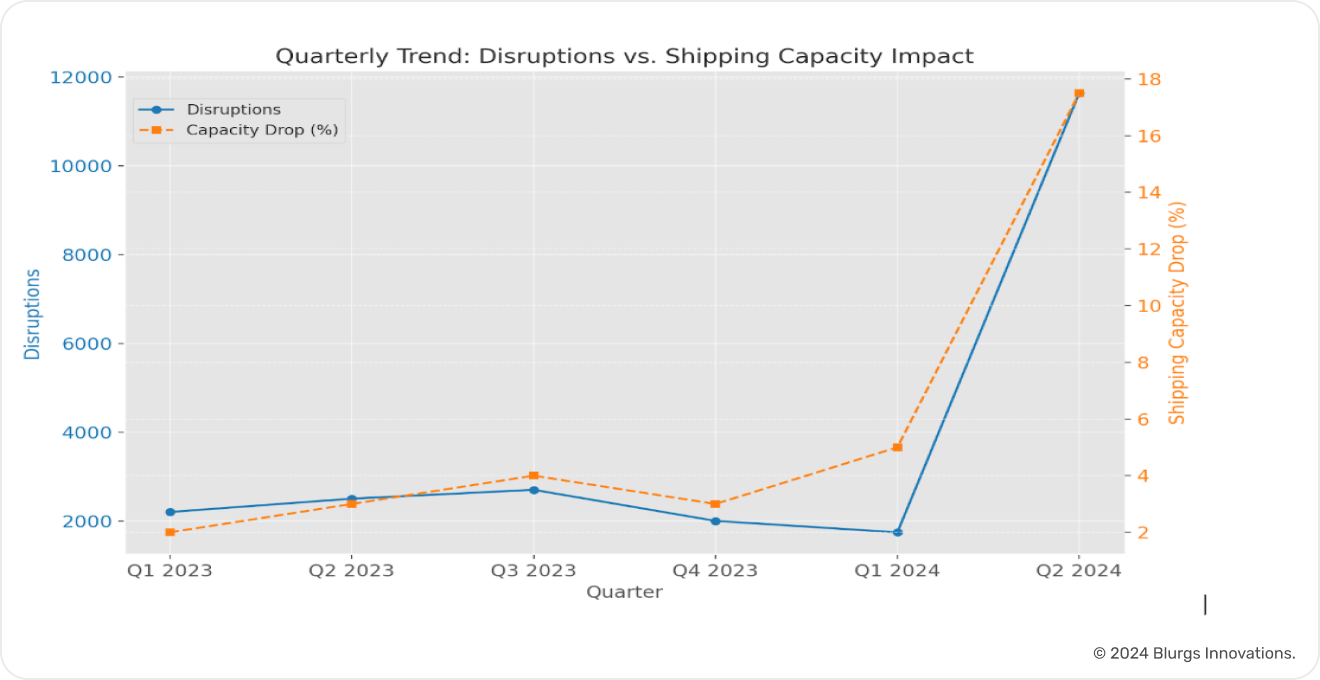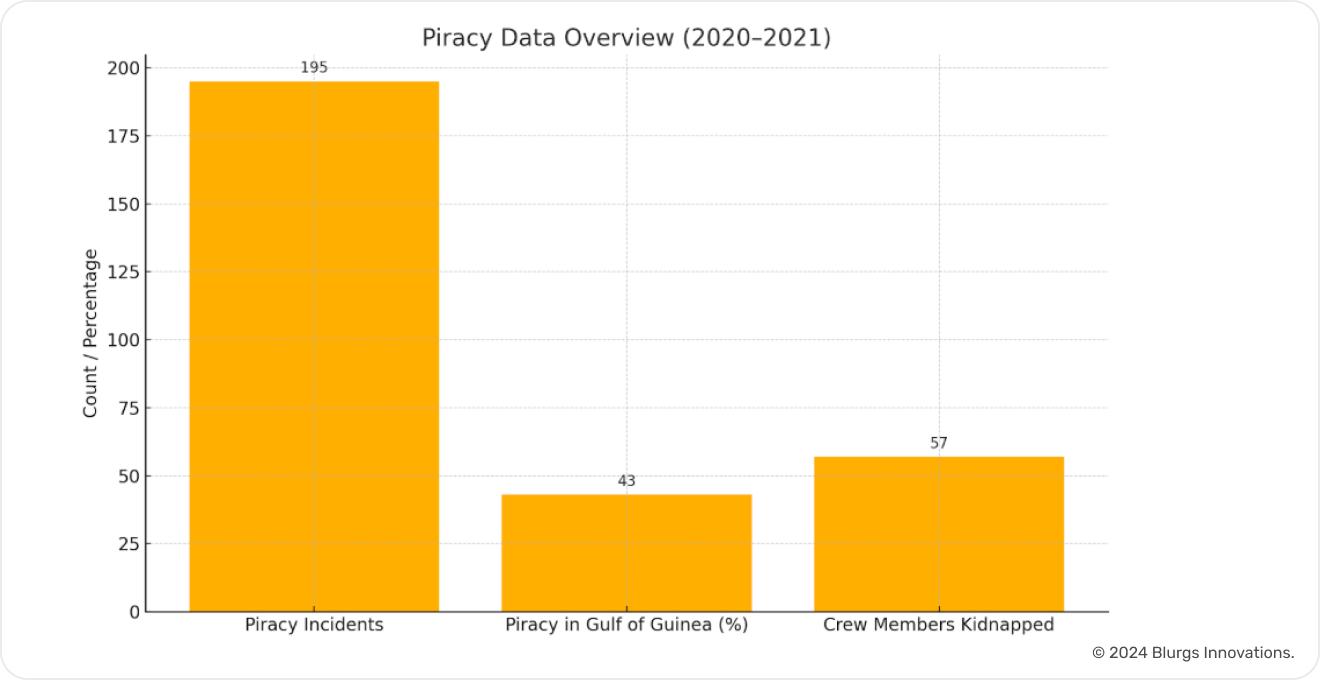159,598 in 2023.
This is the number of cargo theft incidents that have occurred in Europe, Middle East, and Africa (EMEA) in 2023.
But that’s not the most important point. If we go back just one year to 2021, how many cargo theft incidents do you think happened in the same region?
13,413. Still a significant number but not as seismic as 2023.
In short, the number of cargo theft incidents have been on a staggering rise. We looked at the story behind the numbers and uncovered some insights.
A majority of cargo theft occurs when…
- Criminals use stolen identities to misdirect shipments
- Perpetrators launch cyber attacks to access sensitive information
- Complexity of supply chains create points of vulnerability
- High volume of goods regularly pass through specific areas
How Can You Improve Maritime Security?
The rising frequency of such incidents highlights a critical vulnerability in maritime security that demands immediate attention.
Artificial Intelligence (AI) offers a powerful solution to this pressing problem. By leveraging AI technologies, maritime operations can benefit from real-time data analytics, predictive monitoring, and automated threat detection.
AI helps prevent theft, reduces operational losses, and enhances the overall security of maritime activities.
Introduction to AI in Marine Security
AI systems can analyse vast amounts of data from multiple sources, providing actionable insights to detect and prevent potential threats.
AI Capabilities in Maritime Safety
AI technologies excel at tracking vessel movements and detecting anomalies. For instance, AI systems can monitor AIS (Automatic Identification System) data, radar signals, and satellite imagery to identify unusual patterns in ship behaviour.
If a vessel deviates from its expected route or tampers with its AIS signal, AI can flag these anomalies in real-time, alerting authorities to potential risks.
Business Insights of AI
Improved decision-making through AI allows maritime operators to proactively manage risks, ensuring that cargo reaches its destination safely and on time.
For example, with AI-driven analytics, companies can predict potential theft incidents or dangers and take preventive measures. This proactive approach minimises disruptions and ensures smoother operations, translating to reduced insurance premiums, increased customer trust, and resilient supply chains.
AI Integration with Maritime Operations
AI tools can seamlessly integrate into existing maritime operations, enhancing security measures without requiring a complete overhaul of current systems. AI-powered surveillance systems can work alongside traditional monitoring methods, providing an additional layer of protection.
Moreover, automated threat detection systems can continuously scan for suspicious activities, allowing for immediate response and mitigation.
For instance, integrating AI with existing radar and camera systems enables continuous monitoring of port areas, shipping lanes, and high-risk zones. This integration enhances shipping security and optimises resource allocation, ensuring that human efforts are focused on the most critical tasks.
How AI could have Prevented Global Cargo Theft Incidents?
Maersk Tangier Hijacking (2017)
In 2017, the container ship Maersk Tangier was hijacked off the coast of Nigeria. The pirates boarded the ship, took the crew hostage, and stole several containers of valuable cargo.
Impact: The theft caused significant financial losses for Maersk and disrupted global supply chains. It also put the crew at risk and damaged the company’s reputation.
Cosco Shipping Incident (2018)
In 2018, a container ship operated by Cosco Shipping was targeted by thieves while docked at a port in South Africa. The thieves used fake documents to gain access to the ship and stole several containers of electronics and other valuable goods.
Impact: The theft caused financial losses for Cosco Shipping and disrupted operations at the port. It also highlighted vulnerabilities in port security and the ease with which thieves can exploit them.
MSC Gayane Drug Bust (2019)
In 2019, U.S. authorities seized over $1 billion worth of cocaine from the container ship MSC Gayane while it was docked in Philadelphia. The drugs were hidden among legitimate cargo, and several crew members were arrested for their involvement in the smuggling operation.
Impact: The incident caused significant financial losses for MSC and damaged the company’s reputation. It also highlighted the ongoing threat of drug smuggling in the maritime industry.
What are some AI Solutions for Preventing Cargo Theft?
Predictive Analytics
AI can predict potential theft incidents by analysing patterns and anomalies in vast datasets. These predictive analytics identify irregular behaviours and trends that human operators might miss.
For example, AI can analyse vessel movements, cargo handling processes, and port activities to identify suspicious patterns that may indicate theft risks.
Case studies from other sectors, such as logistics and finance, have shown how AI-driven predictive analytics reduce fraud and theft. By applying similar methodologies, maritime operations can proactively address potential threats, minimising the likelihood of cargo theft and ensuring safer shipping routes.
Real-Time Monitoring
Real-time monitoring is crucial in detecting suspicious activities and alerting authorities promptly. AI systems continuously monitor and analyse live data feeds from various sources, such as AIS signals, radar, and surveillance cameras.
These systems can detect anomalies like unauthorised access to cargo containers or unusual vessel behaviours, triggering immediate alerts for security teams to act.
For instance, AI systems in banking monitor transactions in real-time to identify fraudulent activities, preventing significant financial losses. In maritime security, similar AI systems can monitor shipping lanes and port areas, providing continuous surveillance and quick responses to potential threats.
What are the Business Benefits of AI in Maritime Security?
Enhanced Risk Management
AI significantly improves risk management by offering actionable insights and automated responses. These models provide detailed risk profiles, allowing maritime operators to prioritise and address the most critical issues.
Automated threat response systems enable quick and effective action against identified threats. For example, if AI detects an anomaly indicating a potential cargo theft, it can automatically alert security personnel. This will allow them to deploy countermeasures, such as locking down access points or rerouting vessels.
Operational Efficiency
AI streamlines security operations by reducing the need for manual monitoring and intervention. AI-driven automation handles routine security checks and incident management, freeing up human resources for more strategic tasks.
For instance, In incident management, AI can coordinate response efforts, ensuring that all relevant parties receive timely information about a threat to act accordingly.
This automation reduces the burden on security personnel and enhances the overall operational productivity.
Cost Savings
Low risk of cargo theft, translates to lower insurance premiums and minimises operational losses. Companies that invest in AI technologies for security often see a quick return on investment due to these savings.
Moreover, by optimising security operations and reducing manual labour costs, AI contributes to a more efficient use of resources.
In short, the financial benefits of AI integration all contribute to a healthier bottom line.
The Future of Maritime Security with AI
Download our ebook and explore how AI can revolutionise your maritime security strategy. Secure your future with cutting-edge technology today.
Get you copy now.



